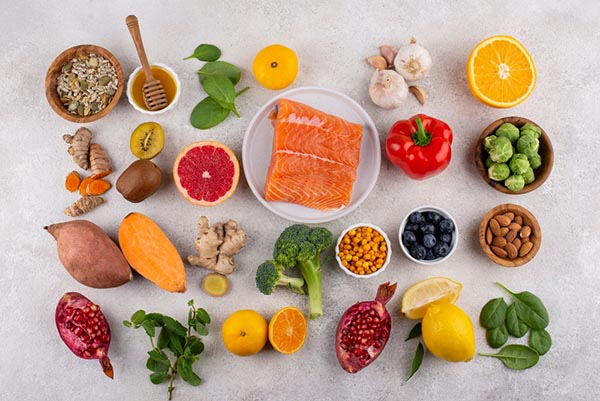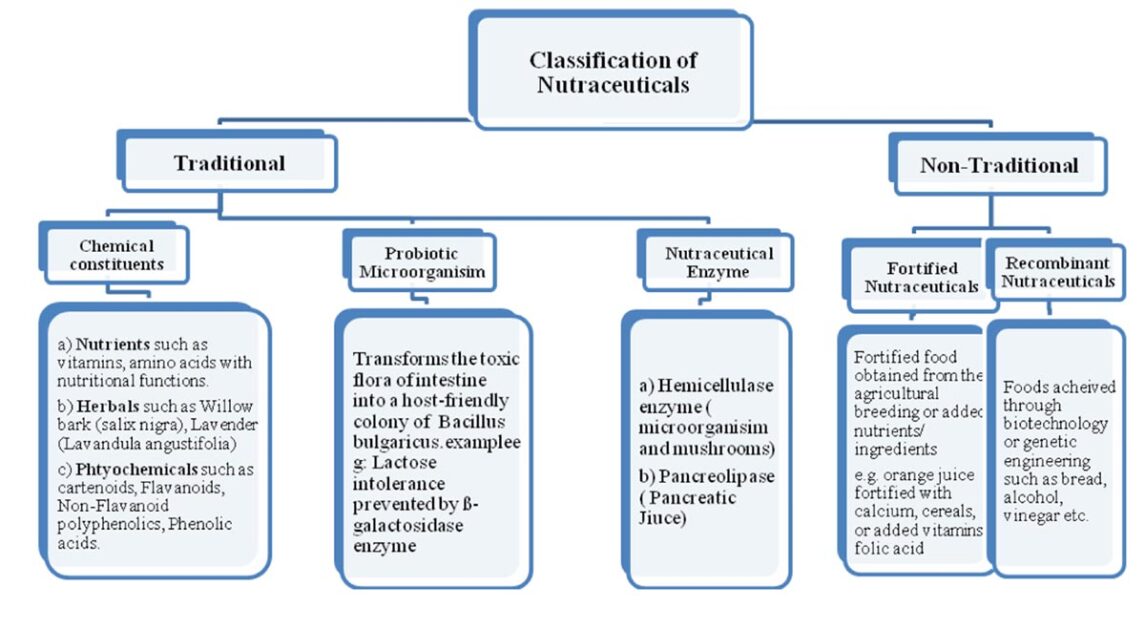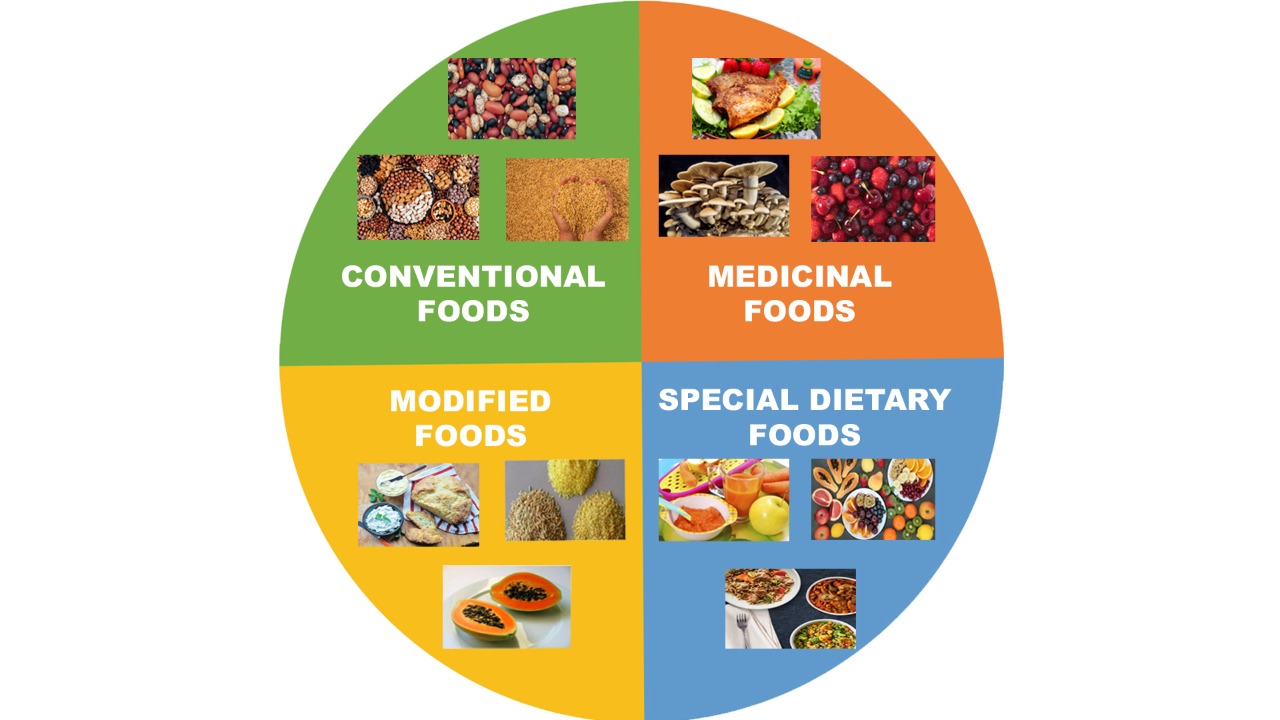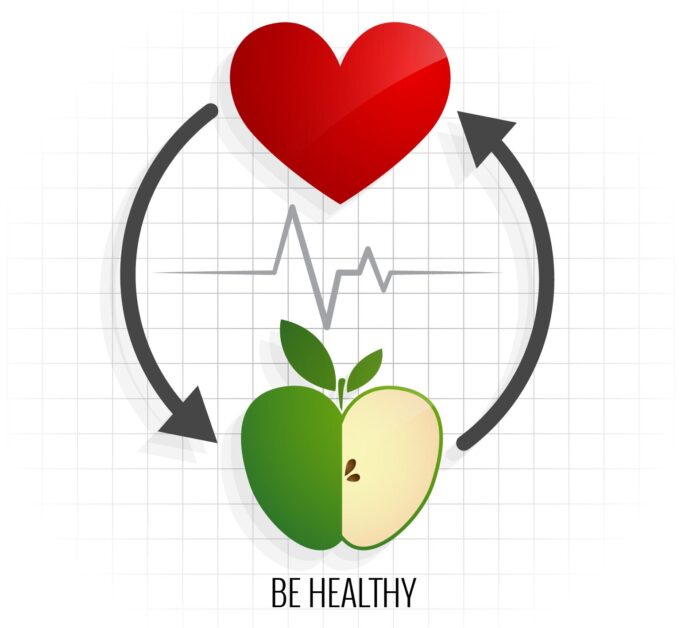Ever wonder if there’s any truth to the adage- “an apple a day keeps the doctor away?” You’ve probably heard the hype about “Functional Foods and Nutraceuticals”. Like apples, blueberries, and leafy greens that are supposedly packed with disease-fighting nutrients. Food as Medicine is the trending ideology of today’s health conscious population

The worldwide functional food market achieved a worth of USD 206.75 billion in 2023. And it is projected to expand at a 6.7% compound annual growth rate (CAGR) in the forecast span from 2024 to 2032. Ultimately reaching a value of USD 370.53 billion by 2032.
But do these superfoods live up to the marketing claims? As a certified healthcare professional, we are here to give it straight. We’ll cut through the myths and break down the science behind some of the healthiest foods in your diet.
You’ll learn which compounds in foods like apples may help boost your health and immunity. How much functional foods and nutraceuticals you need to eat to reap the benefits, and how they compare to supplements. By the end of this article, you’ll know what are functional foods and its importance. And whether an apple a day can replace your doctor’s visit.
The truth may surprise you!
Also Read:
- Learn Every Day: How to Develop a Habit of Constant Growth
- The Future of Coworking: 10 Trends That Will Shape 2024
- Miracle Multiples: Complete Resource for Healthy Twins and Triplets
What Does Functional Food Mean?
‘Functional foods’ may provide health benefits beyond essential nutrition. An apple a day keeps the doctor away – or does it? This definition has drawbacks.
Functional Food Definition: Innovative foods specially prepared to include ingredients or living microorganisms that offer potential health benefits or disease prevention. Above all, at a concentration that is both safe and high enough to have the desired effect. Nutrients, dietary fibre, phytochemicals, other materials, or probiotics are examples of additional components. Functional foods highlight the idea that food is not just essential for survival but can also help prevent diseases, reduce risk factors, and improve important bodily functions.

Difference Between Functional foods and Nutraceuticals
Both functional foods and nutraceuticals aim to promote health, they differ in their form, regulation, and primary focus. Functional Foods Definition: are regular foods or food products that have been enriched, fortified, or modified to contain specific beneficial components, such as added vitamins, minerals, probiotics, or other bioactive compounds. They are intended to be consumed as part of a regular diet. Nutraceuticals means products that are derived from food sources with additional health benefits beyond basic nutritional value. These bio-active compounds provide health advantages and are often used as supplements. A nutritious synonym for nutraceuticals is “healthful.” The nutraceutical definition encompasses substances promoting well-being.

Also Read:
Health Benefits of Functional Foods
functional foods and nutraceuticals offer many potential health benefits due to their added bioactive components. These foods can go beyond essential nutrition to support various aspects of well-being. Some of their advantages include:
- Improved Digestive Health: Probiotic-fortified yoghurt and fibre-rich foods promote a healthy gut.
- Heart Health: Omega-3 fatty acids in fatty fish and plant sterols in some spreads can help lower cholesterol.
- Bone Health: Calcium-fortified products and vitamin D-fortified foods support strong bones.
- Weight Management: High-fiber, low-calorie options aid satiety and weight control.
- Antioxidant Protection: Berries and green tea provide antioxidants that combat free radicals.
- Blood Sugar Regulation: Foods with soluble fibre, like oats, can stabilize blood glucose.
These functional foods can be valuable additions to a balanced diet, addressing specific health needs.
What are Functional Foods Examples
Functional foods contain bioactive compounds that can promote overall well-being or address specific health concerns when consumed as a balanced diet. Apples are considered an available food because they contain compounds like quercetin that can help reduce inflammation and may lower the risk of some diseases.

Embrace a Vibrant Palette of Nutrient-Rich Delights
Embrace this diverse range of foods to unlock a spectrum of nutrients and enjoy enhanced vitality, digestion, and overall well-being.
1. Colorful Fruits:
Indulge in the natural sweetness of juicy berries, kiwi, and oranges, loaded with antioxidants to bolster your immune system and enhance skin health. Blueberries, blackberries and strawberries contain anthocyanins that improve memory and cognition
2. Leafy Greens:
Elevate your meals with nutrient-packed vegetables like kale and spinach, which provide essential vitamins and minerals for optimal bone health and vitality.
3. Nature’s Energy Boosters:
Fuel your day with a handful of almonds, a natural source of healthy fats and protein, promoting heart health and sustained energy.
4. Seed Superstars:
Incorporate chia seeds and flax seeds into your diet to support digestive health, thanks to their rich fiber content, while hemp seeds offer an excellent source of plant-based protein.
5. Plant Protein Powerhouses:
Savor lentils and black beans for their protein and fiber, aiding in muscle maintenance and blood sugar regulation.
6. Whole Grains Galore:
Enjoy hearty whole grains like oats and brown rice, delivering a sustained energy release and improved digestive regularity.
7. Seafood Treasures:
Dive into the heart-healthy benefits of salmon, sardines, and mackerel, brimming with omega-3 fatty acids for cognitive function and cardiovascular health.
8. Gut-Friendly Ferments:
Nourish your gut microbiome with kimchi, kefir, and sauerkraut, known to enhance digestion and strengthen your immune system.
9. Spice Up Your Life:
Elevate your dishes with turmeric’s anti-inflammatory properties, cinnamon’s blood sugar regulation, and ginger’s digestive support.
10. Reviving Elixirs:
Sip on the natural antioxidants of green tea and black tea, or savor the energy kick from coffee. Green Tea is packed with EGCG, a compound that can enhance brain function and fat loss.
While functional foods contain beneficial compounds. A diet high in plant foods and low in processed junk may help reduce disease risk and promote longevity.
Research and scientific interventions have created modified functional foods. These foods have been altered to include specific ingredients or nutrients to provide additional health benefits. Some examples include:
- Fortified dairy products with added probiotics for digestive health.
- Omega-3 enriched eggs for heart health.
- Calcium-fortified orange juice for bone health.
- Fiber-fortified cereal to support digestive regularity.
- Plant sterol-fortified margarine to help lower cholesterol.
- Vitamin D-fortified milk for bone health.
- Iron-fortified baby cereals for infant nutrition.
- Low-sodium, reduced-fat soups with added fibre for weight management.
- Sports drinks with electrolytes for hydration and energy replenishment.
- Gluten-free products for individuals with celiac disease or gluten sensitivities.
These foods have been intentionally modified to offer specific health benefits beyond their natural nutrient content. In recent times, millets have gained global recognition as a functional ingredient incorporated into numerous processed food products worldwide.
Functional foods and nutraceuticals can be part of a healthy diet but don’t believe the hype that any single food is a quick fix for good health. A balanced diet with lots of whole foods is the key.
Focus on the forest, not just one tree
The Science Behind: Is Apple Good for Diabetes?
Apples are chock full of nutrients that may help keep the doctor away. Apples can be a part of a diabetes-friendly diet due to their fibre content, which can help stabilize blood sugar levels. They have a low glycemic index, causing a slower rise in blood glucose.

Here are some of the top reasons an apple a day is so good for you:
Fibre
Apples contain pectin, a type of fibre that can help lower cholesterol and control blood sugar levels. Just one medium apple provides about 4 grams of fibre, 14% of your daily needs.
Vitamin C
Apples are an excellent source of vitamin C, an antioxidant that supports your immune system. One apple contains about 8 milligrams of vitamin C, which is 13% of your daily requirement.
Polyphenols
Apples also contain polyphenols, plant compounds that act as antioxidants. Polyphenols may help reduce inflammation and lower the risk of chronic diseases like cancer or cardiovascular disease.
Potassium
Apples are a good source of potassium, an electrolyte mineral essential for heart health and proper nerve and muscle function. A single apple contains about 195 milligrams of potassium, 6% of your recommended daily intake.
Apple Nutrient Facts
| Nutrient | Amount |
| Calories | 95 |
| Carbohydrates | 25 grams |
| Dietary Fiber | 4 grams |
| Sugars | 19 grams |
| Protein | 1 gram |
| Fat | 0 grams |
| Vitamin C | 14% of Daily Value (DV) |
| Vitamin A | 1% |
| Potassium | 195 milligrams (5% of the DV) |
| Calcium | 1% of the DV |
| Iron | 1% of the DV |
From the table it is clear: Medium apple: 95 calories, 25g carbs, 4g fiber, 1g protein, rich in vitamin C. While an apple a day may not keep the doctor away, its nutritional benefits can help support good health and may even reduce the risk of disease when consumed as part of a balanced diet.
How Many Apples Can a Diabetic Eat Per Day
The number of apples a diabetic can safely eat daily depends on factors like blood sugar control, overall diet, and activity level. A general guideline is to consume one small to medium-sized apple as part of a balanced diet and monitor blood sugar levels. Consulting a healthcare professional or dietitian is recommended for personalized recommendations.
Remember that portion control is essential, as excessive consumption can still impact blood sugar. For individualized guidance, it is better to speak with a healthcare provider or nutritionist.
So grab a crisp, juicy apple and take a bite.
What Spikes Insulin
Insulin is primarily released in response to increased blood sugar levels. Foods and factors that can spike insulin secretion include high-carbohydrate meals, especially those with refined sugars and starches, sugary beverages, and foods with a high glycemic index. Additionally, protein-rich foods can stimulate insulin production, although to a lesser extent than carbohydrates. Maintaining balanced meals and monitoring insulin response is essential, especially for individuals with diabetes.
Which food raises how much sugar
So which food raises how much sugar? Some of the names in the list of the worst offenders may come as a surprise to most of you. Let’s analyse Which food raises how much sugar.

Starchy foods
Foods high in starch, like potatoes, rice, and grains, convert quickly into sugar in your body.
- A single cup of white rice contains about 45 grams of starch and can raise your blood sugar almost as much as eating 2-3 tablespoons of straight table sugar.
- Mashed potatoes, french fries, and chips are starchy and often fried in unhealthy fats, creating a blood sugar double whammy. Limit these as much as possible.
Sugary drinks
Sodas, fruit juices, sports drinks, sweetened coffee, and tea drinks are loaded with added sugar and simple carbohydrates that rapidly spike blood glucose.
- A 12-ounce Can of popular Coke contains 39 grams of sugar and 140 calories.
- Fruit juice isn’t much better, with a small glass containing 21 grams of sugar and 110 calories.
- These sugary beverages offer little to no nutrition and should be avoided. Replace them with water, unsweetened beverages or moderate portions of whole fruit.
Dried fruits
While whole fresh fruit can be part of a healthy diet, dried fruit is very high in sugar and calories for its size. Just 1/2 cup of raisins contains 59 grams of sugar and 305 calories. Other dried fruits like cranberries, cherries and apricots also contain added sugar. Enjoy dried fruit in strict moderation, preferably with no added sugar.
Ultimately, an apple a day may help keep the doctor away, but only as part of a balanced diet with moderate portions. Focus on wholesome, nutritious foods, watch out for hidden sugars, and keep treats occasional.
Understanding the Impact: How Much Will 30 Grams of Sugar Raise Blood Sugar Levels?
The effect of 30 grams of sugar on blood sugar levels varies from person to person, depending on factors like individual tolerance and other nutrients in the meal. However, it’s essential for individuals with diabetes or those monitoring their blood sugar to be mindful of their carbohydrate intake, as excessive sugar can lead to significant glucose spikes.
Functional Foods Can’t Replace a Healthy Lifestyle
While certain foods like apples, broccoli, and blueberries are packed with nutrients, they alone won’t keep the doctor away. A balanced diet and active lifestyle are crucial to supporting health and wellness.
Dietary changes aren’t enough.
Eating more fruit, veggies, whole grains, and lean proteins is beneficial, but dietary tweaks alone won’t transform your health or decrease disease risk. Conditions like heart disease, cancer, and diabetes are complex, often developing from a combination of factors like genetics, environment, and lifestyle habits.

Simply adding a few “superfoods” to your diet won’t undo the effects of smoking, excessive drinking, lack of exercise or chronic stress. For the best health outcomes, focus on a balanced diet with many nutritious foods, watch your portions, and couple good nutrition with regular exercise, adequate sleep, limited alcohol and avoiding tobacco products.
The Big Picture: Functional Foods and Nutraceutical
When it comes to health, the whole is greater than the sum of its parts. Eating an apple a day or any other functional food, provides nutritional benefits but is not a substitute for positive lifestyle changes. Your health depends on the totality of choices you make every day. Focus on nutritious whole foods, portion control, stress management, limiting unhealthy habits, regular exercise, quality sleep, and maintaining a healthy weight. These actions, done consistently over the long run, are your best path to wellness and avoiding disease.
One apple—or any food—may be a good start, but proper health comes from living well every day. Consider the big picture and make choices that support your total well-being.
Talk to Your Doctor About Incorporating More Functional Foods
Whether you’re looking to improve your health or manage a chronic condition, ask your doctor about adding more functional foods examples to your diet.

When discussing the incorporation of more functional foods into your diet with your doctor, consider asking these three questions:
- “Are there any particular functional foods or dietary adjustments that might help my goals or health condition?”
- “What is the suggested daily consumption of these functional foods for me, in terms of portion sizes?”
- “Are there any possible conflicts that I should be aware of between these foods and my current medications or health conditions?”
Talk to your doctor before making significant changes to your diet or taking supplements. They can review your health conditions and medications to determine what functional foods and how much of them are suitable for you based on your unique situation. Making healthy changes, add functional Foods and nutraceuticals under the guidance of your doctor is the best way to reap the benefits of functional foods. Functional foods and nutraceuticals play a crucial role in promoting overall health and well-being by offering specific beneficial components beyond basic nutrition

FAQ: Functional Foods and Nutraceuticals
How quickly does apple juice raise blood sugar
Apple juice can cause a rapid increase in blood sugar levels. It typically takes 15-30 minutes to see a noticeable spike after consuming apple juice, especially if it’s not paired with other foods to slow digestion.
Can diabetics eat apples?
Yes, diabetics can eat apples in moderation. Apples for diabetics provide essential nutrients and fiber, aiding in blood sugar control. However, it’s crucial to monitor overall carbohydrate intake. Consult with a healthcare professional for personalized dietary recommendations like-how many apples can a diabetic eat per day.
What Foods Reduce Sugar Levels?
Foods that can help reduce sugar levels include Non-starchy vegetables like spinach and broccoli, whole grains such as oats and quinoa, Lean proteins like chicken and fish, Legumes like lentils and beans, Foods rich in fibre, like chia seeds, Cinnamon and fenugreek, which may help with blood sugar regulation, Berries, known for their antioxidant properties.
What is Food Functionality?
It is an emerging trend is the food functionality, encompassing the addition of nutritious additives, supplements, or vitamins to an existing food item
Conclusion
So, while an apple a day may be a catchy saying, the reality is that no one food alone can magically boost your health or ward off disease. However functional Foods and nutraceuticals when consumed as part of a balanced diet with a variety of nutritious whole foods, apples, and other functional foods, it may help reduce disease risk and support overall wellness. It is clear that functional foods definition aligns with the pursuit of optimal health and overall well-being.
The key is focusing on a healthy diet rather than relying on any ‘miracle’ food. You have the power to optimize your health through the choices you make every day. Awareness is very important to understand what are functional foods.
Small changes can add significant benefits. Now you are well aware- “what are functional foods”. So pick your favourites from the functional food list, start experimenting in your kitchen, and take your health into your own hands. Who knows, you might end up keeping that doctor away after all.
Our Digital Imprints:
Anuj Mahajan is a Mass Communication Specialist,
ICF Certified Coach & Corporate Trainer. Motivational Speaker / NLP Lifecoach.
Chief Operating Officer: Nuteq Entertainment Pvt Ltd, and
Co-Founder: Trendvisionz – A Premier Digital Marketing Agency in India
Get Connected to us with our Newsletters-Transforming Lives… Creating the magic. Just – Believe ~ Practice ~ PerformBizTech Chronicle… Navigating Tomorrow’s Tech Frontiers 🚀
Join my LinkedIn Group: Digital Marketing, Content Creation World Group
Follow me on Twitter or LinkedIn. Check out my website.

